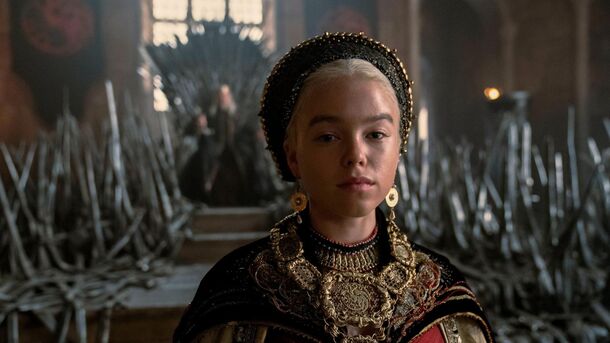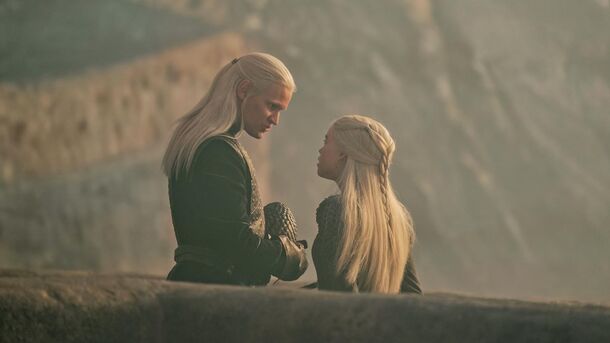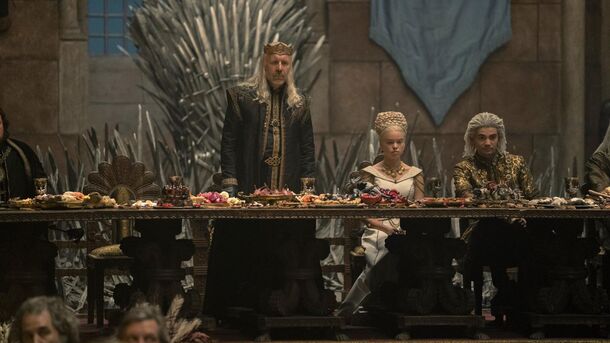4 Unexpected Ways House of the Dragon Strays From the Original Book

The show is not completely faithful to the source material, but you know what? That's a good thing.
Today we will finally see the second season of House of the Dragon, where the escalating conflict between the Blacks and the Greens is about to reach its climax.
We decided to remind you in which cases the series deviated from the original book by George R.R. Martin Fire & Blood, which will also remind you what happened in the first season.
1. Friendship Between Alicent and Rhaenyra
In the book, Alicent is considerably older than Rhaenyra and is not her close friend. Alicent was in an intimate relationship with King Viserys long before his wife's death – which, of course, the entire court knew about.
In the show, Alicent is the same age as Rhaenyra, her loyal assistant and friend. Their innocent childhood bond became the perfect foil for the later drama, when Alicent married the king and gave birth to his long-awaited heir. As a result, Alicent and Rhaenyra became rivals, and their bitter hatred for each other is especially heartbreaking since they were best friends only a few years ago.
2. The White Walkers Dream

At the end of the first episode, Viserys reveals to Rhaenyra the Targaryen family's greatest secret: it turns out that many years ago, Aegon the Conqueror had a prophetic dream he called A Song of Ice and Fire. This vision helped Aegon realize an important truth: the Targaryens must unite all seven kingdoms for the great war that will follow the long winter.
Of course, there is no mention of the White Walkers in the book. For a fairly obvious reason: the Maesters and the Court Jester, on whose behalf the story is told, simply could not know the great Targaryen secret, which can only be passed from father to son.
Obviously, the writers of the show tried to strengthen the connection between the prequel and the main series with this plot device. George R.R. Martin himself is said to have invented this scene, making it canon despite the lack of literary support.
3. Confrontation at Dragonstone

When Daemon steals a dragon egg to give to his pregnant concubine, King Viserys flies into a rage and orders the Hand to return the family inheritance to the castle at all costs. Rhaenyra senses that her uncle will not just give up, and in hopes of avoiding violence, goes to Daemon herself. She manages to take the egg without escalating the conflict.
One of the most important scenes in the second season of House of the Dragon is described in the book in literally two sentences, in which Daemon submits to his brother's will without question and does not even try to defend his right to the egg.
The meeting between Rhaenyra and Daemon on Dragonstone is a prime example of the show's ability to adapt the source material. Not only did the writers manage to increase the tension between the main characters, but they also revealed their characters in a rather unexpected way.
4. The Red Wedding 2.0

Every loyal fan of George R.R. Martin knows that in the Westeros universe, a wedding is not a sweet celebration, but another battleground. In the fifth episode, we are shown the wedding of Rhaenyra and Laenor, which ends with the death of Joffrey Lonmouth.
Lonmouth, Laenor's former lover, acts as an unwitting catalyst for Criston, rejected by Rhaenyra, to laugh at his broken heart. Of course, this does not end well.
In the book, Criston also kills Lonmouth, but at a wedding tournament, not a feast. However, the four previous episodes of House of the Dragon have shown viewers plenty of fighting in tournaments, and not a single unexpected death at a wedding. In addition, according to the writers, the decision to move the location of Joffrey's murder was driven by a desire to make the moment more powerful and memorable.
